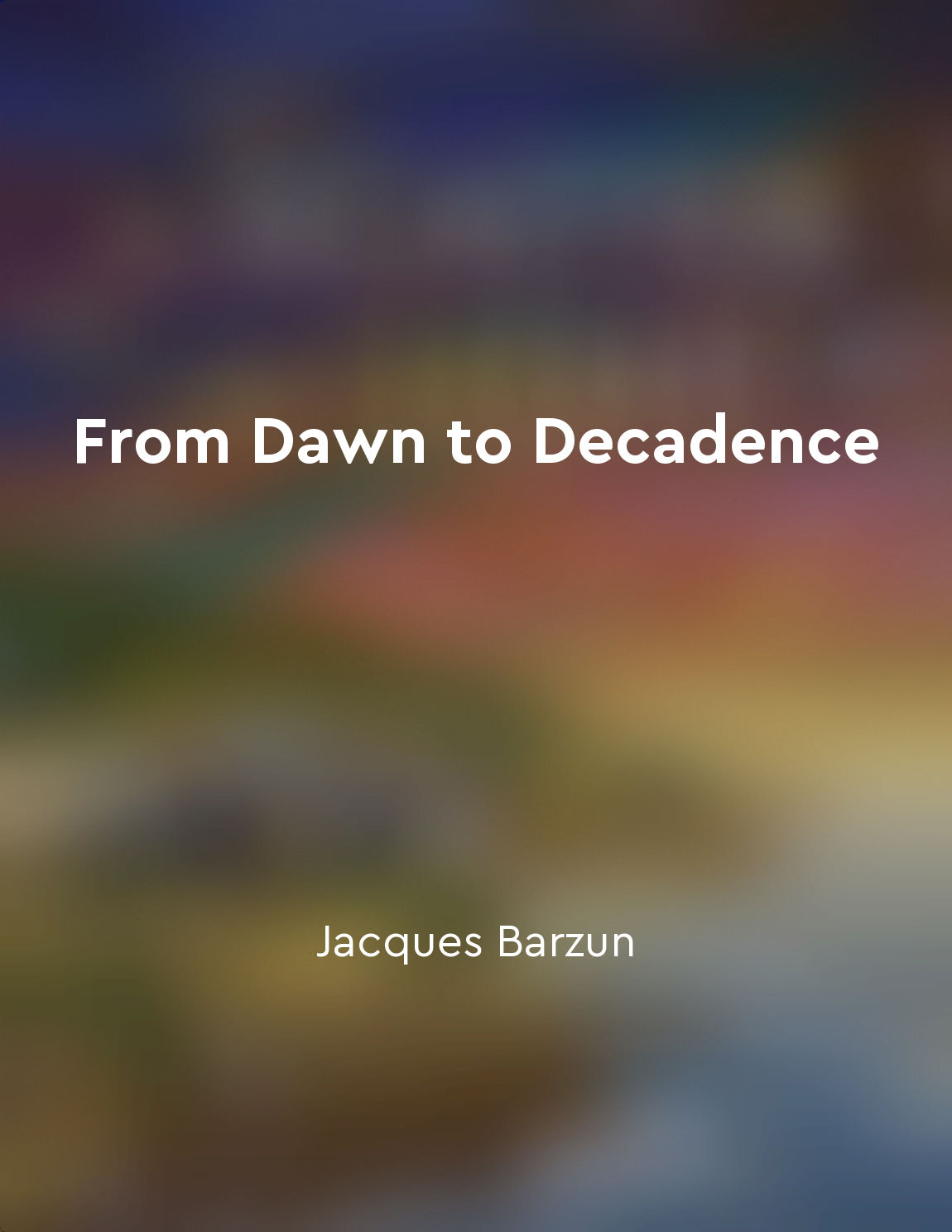Romanticism and its impact from "summary" of From Dawn to Decadence by Jacques Barzun
Romanticism, a cultural movement that emerged in the late 18th century, had a profound impact on Western society. It was a reaction against the rationalism and materialism of the Enlightenment, emphasizing emotion, imagination, and individualism. Romantics sought to explore the depths of human experience, embracing nature, the supernatural, and the exotic. One of the key aspects of Romanticism was its celebration of the individual. Romantics believed in the power of the individual to shape their own destiny and create their own reality. This focus on personal experience and emotion was a stark departure from the emphasis on reason and logic that had characterized the Enlightenment. Romanticism also had a significant influence on the arts, literature, and music of the time. Romantic artists sought to evoke strong emotions in their audience, often through dramatic and powerful imagery. Writers like Wordsworth, Coleridge, and Keats explored themes of nature, love, and the supernatural in their poetry, while painters like Goya and Delacroix depicted scenes of passion and violence. In music, composers like Beethoven and Chopin pushed the boundaries of classical forms, infusing their work with emotional intensity and drama. The Romantic period saw the rise of the virtuoso performer, who dazzled audiences with their technical skill and emotional expressiveness. The impact of Romanticism was not limited to the arts, however. It also had a profound influence on politics, philosophy, and social movements. Romantics believed in the importance of individual freedom and self-expression, ideas that would later shape movements for democracy and human rights.- Romanticism was a complex and multifaceted cultural movement that left a lasting impact on Western society. It challenged the prevailing norms of the Enlightenment, emphasizing emotion, imagination, and individualism. Its influence can still be felt today in our conception of the self, our appreciation of art and literature, and our understanding of the human experience.
Similar Posts

The legacy of Western civilization
The legacy of Western civilization is a multifaceted concept that encompasses a wide range of ideas, philosophies, and practice...
"Christabel" explores supernatural themes
The poem "Christabel" delves into the realm of supernatural themes, weaving a mysterious and eerie atmosphere throughout its na...
Stoic ethics promote inner harmony
Stoic ethics emphasize the importance of achieving inner harmony through the cultivation of virtue and the regulation of one's ...
The 17th century saw the rise of metaphysical poetry
The 17th century marked a significant shift in English literature, particularly in the realm of poetry. During this period, the...
Stoicism and romanticism offer complementary perspectives on emotion
The intertwining of Stoicism and romanticism provides a richer understanding of human emotion. Stoicism, with its emphasis on r...
Encouraging open and honest conversations about mental health can break down barriers to seeking help for melancholy
In discussing the importance of open and honest conversations about mental health, we can see how breaking down barriers to see...
Art can be a form of cultural resistance
In the realm of art and culture, there exists a powerful notion that art can serve as a means of challenging and resisting domi...

